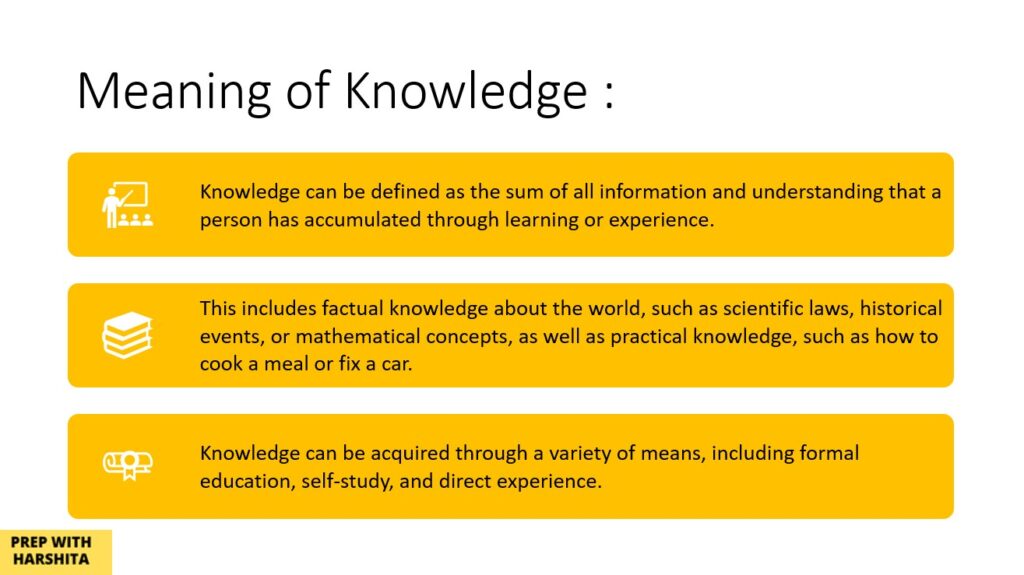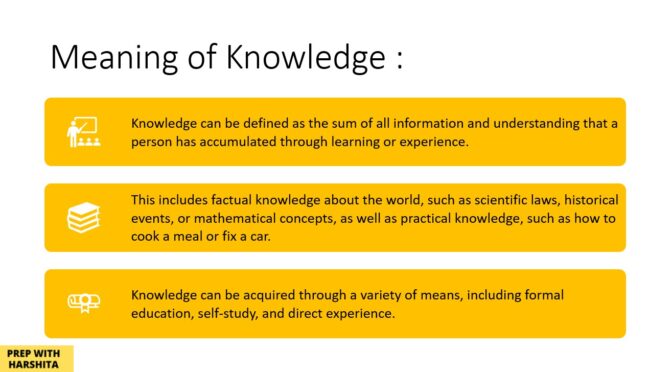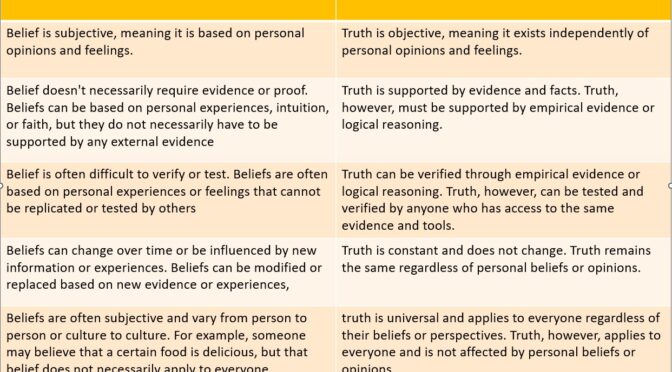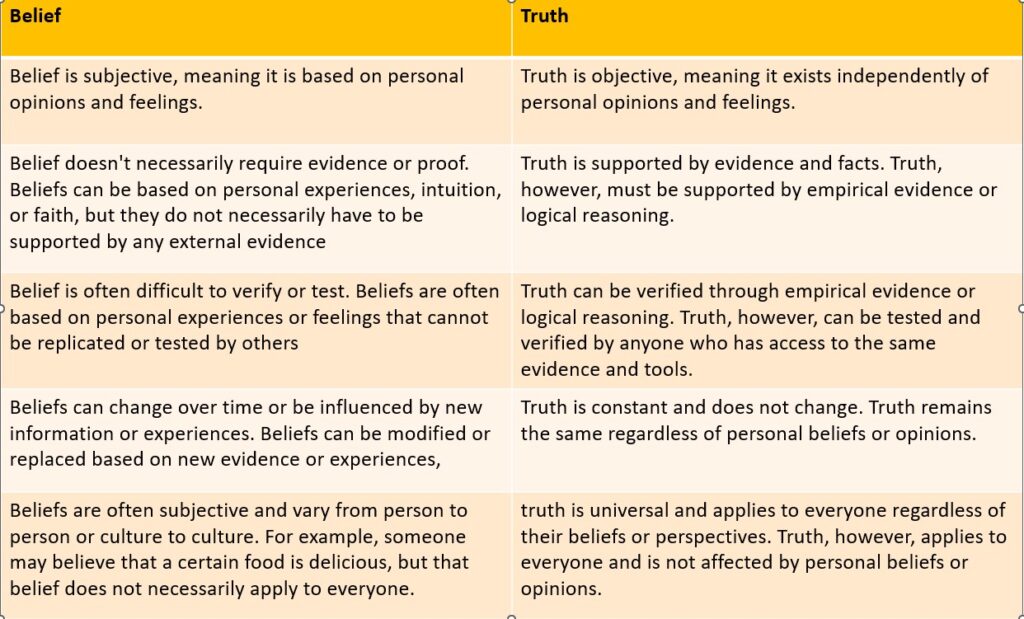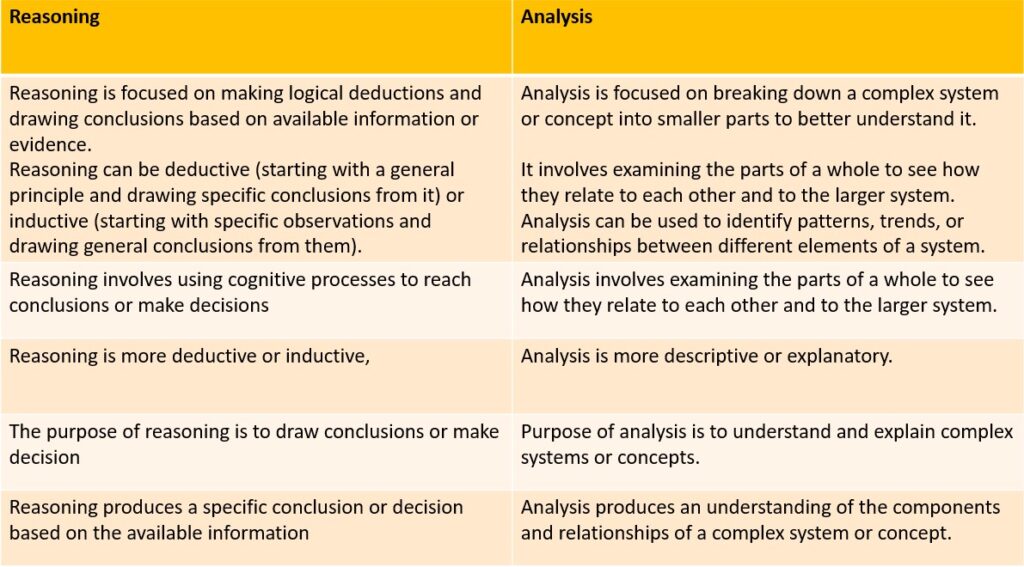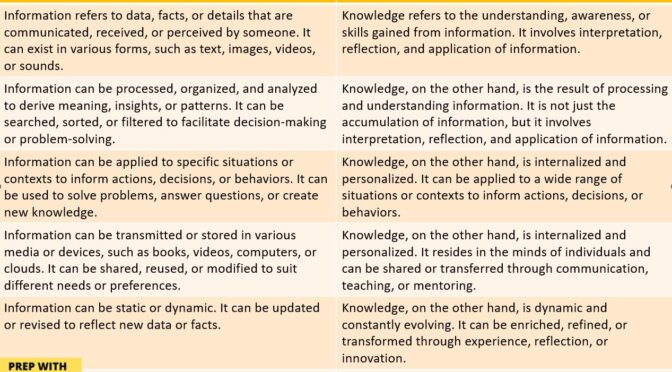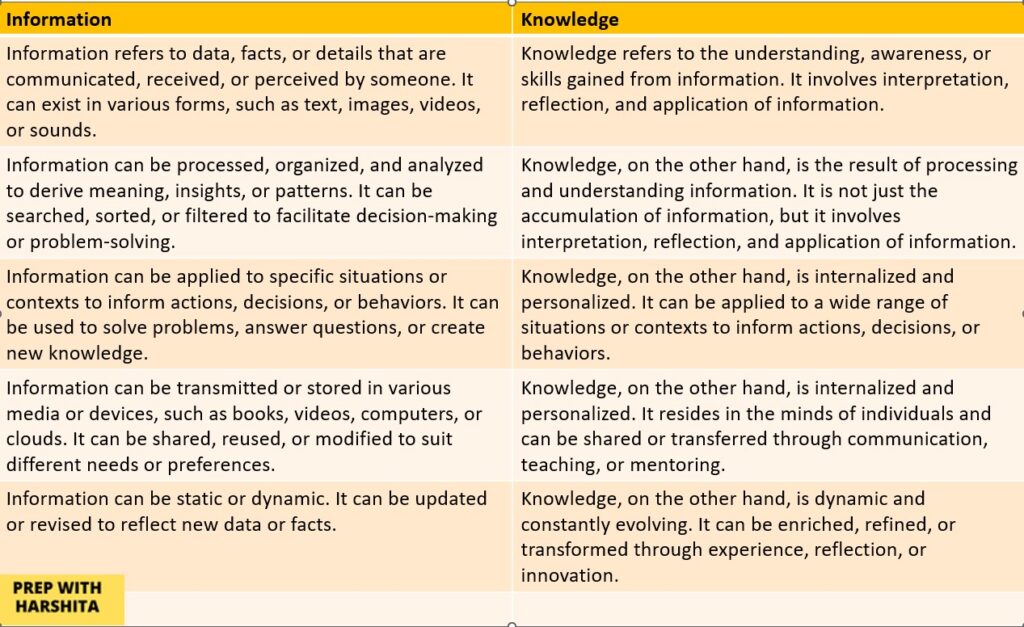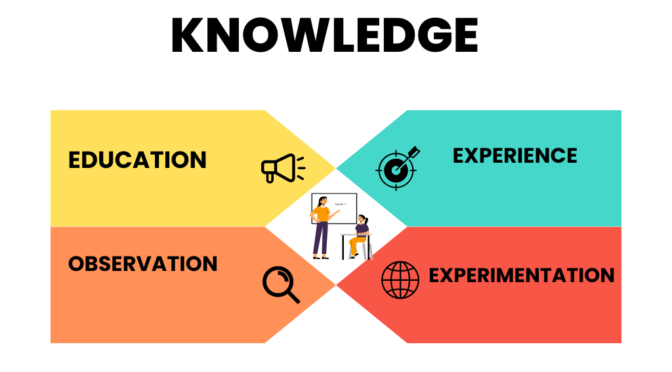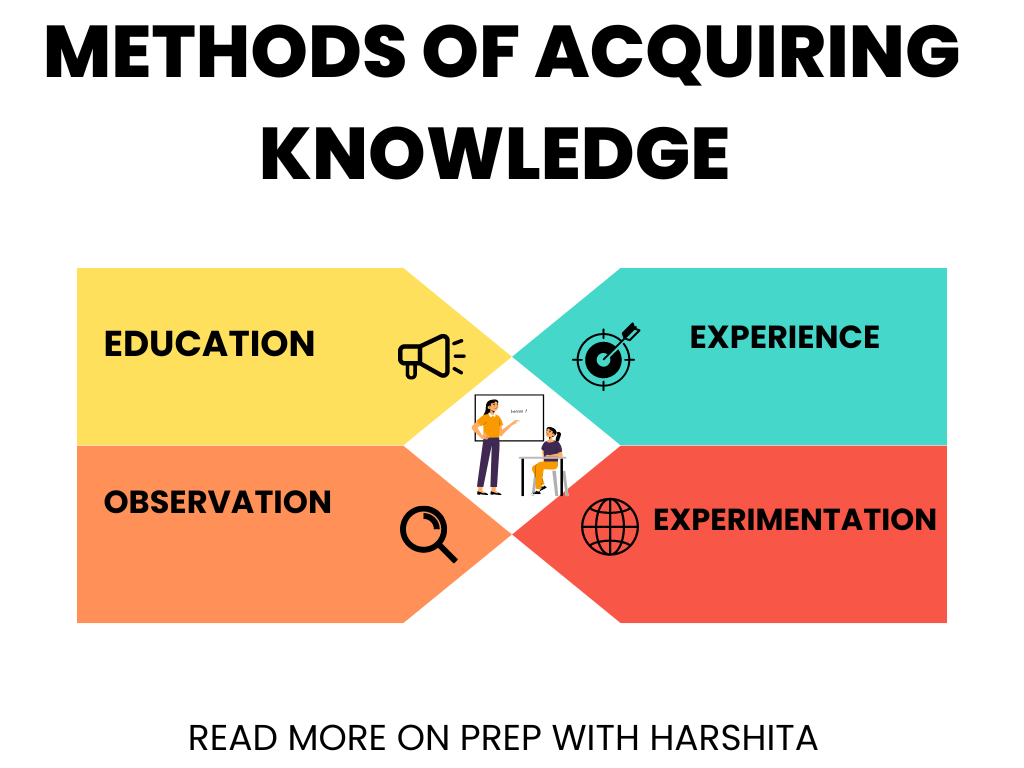Knowledge and knowing are closely related concepts that are fundamental to our understanding of the world around us. There is a slight difference between the meaning of knowledge and Knowing :
Meaning of Knowledge :
- Knowledge can be defined as the sum of all information and understanding that a person has accumulated through learning or experience.
- This includes factual knowledge about the world, such as scientific laws, historical events, or mathematical concepts, as well as practical knowledge, such as how to cook a meal or fix a car.
- Knowledge can be acquired through a variety of means, including formal education, self-study, and direct experience.
Meaning of Knowing :
- Knowing, on the other hand, refers to the subjective experience of having knowledge or awareness about something.
- It involves the ability to recognize or understand something and to make sense of it in a meaningful way.
- Knowing can be based on direct experience, intuition, or reasoning, and can involve both cognitive and emotional components.
One way to understand the difference between knowledge and knowing is to think of knowledge as a static accumulation of information, while knowing is a dynamic process that involves active engagement with that information. Knowledge is often seen as something that can be acquired, stored, and retrieved, while knowing is an ongoing process of interpretation and sense-making that is influenced by personal experiences, biases, and beliefs.
For example, a person might have knowledge about the laws of physics, but that knowledge alone does not necessarily mean they truly understand how those laws work or how they apply in real-world situations. Knowing, in this case, would involve using that knowledge to make predictions, solve problems, or create new technologies.
In summary, while knowledge and knowing are related concepts, they represent different aspects of our understanding of the world. Knowledge is the accumulation of information and understanding. Knowing involves the active use of that knowledge to make sense of the world and to guide our actions and decisions.
Also Read: Information and Knowledge
